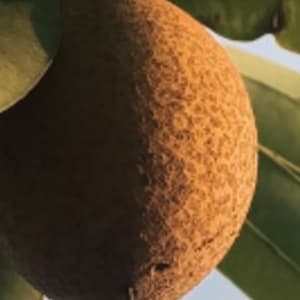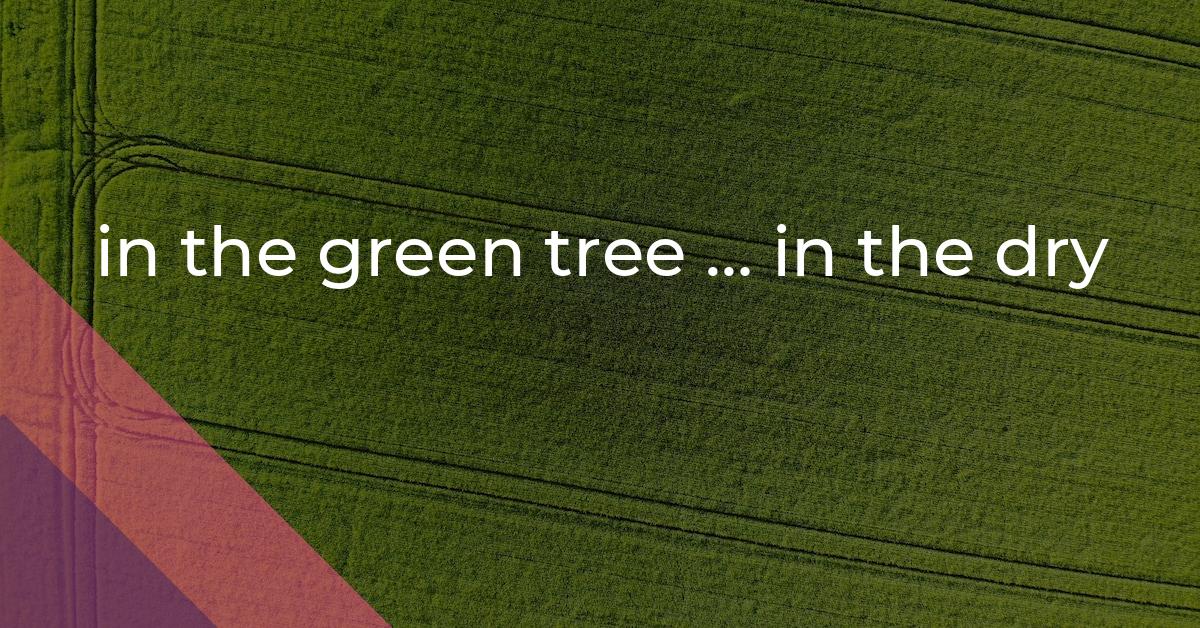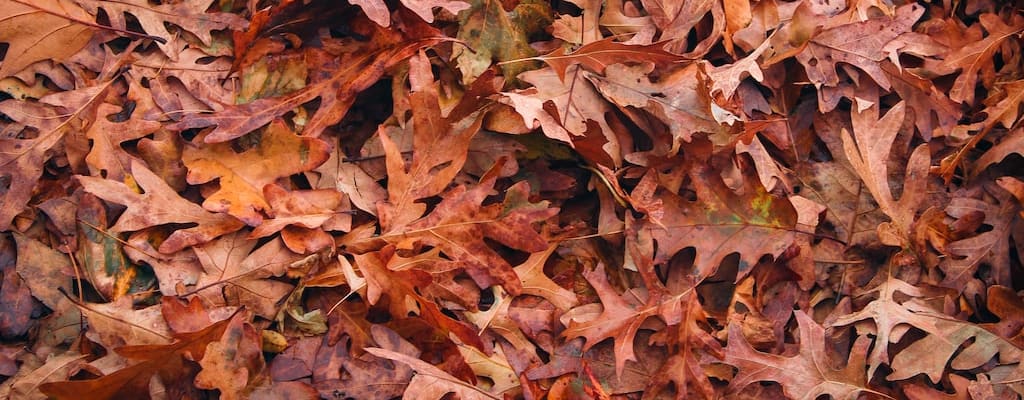in the green tree … in the dry: Idiom Meaning and Origin
What does ‘in the green tree … in the dry’ mean?
The idiom "in the green tree … in the dry" means being in a favorable or advantageous situation versus being in a difficult situation or unfavorable conditions.

Idiom Explorer
The idiom "in the swim" means to be actively involved or participating in something, typically referring to being part of the current trends, events, or activities. It suggests being well-informed and connected to what is happening around you.
The idiom "in the same shoes" means to be in the same situation or experiencing the same circumstances as someone else.
The idiom "in the same boat" means being in a similar situation or facing the same difficulties as others.
The idiom "in the right place at the right time" means being present at the perfect moment or location to take advantage of an opportunity or a fortunate event.
The idiom "in the pink of health" means to be in a very good and healthy condition.
The idiom "in the money" means to be in a financially successful or prosperous situation.
The idiom *in the drink* means to be in a difficult or unpleasant situation, often caused by one's own actions or decisions. It originates from the idea of someone falling into water or a drink, representing a sudden and unexpected mishap or trouble.
The idiom "in the black" means to be financially solvent or profitable, typically used to describe a business or organization. It signifies the state of having positive earnings, as opposed to being in debt or operating at a loss. This idiom is rooted in the convention of using black ink to represent profit on financial statements.
The idiom "in fighting trim" means to be in good physical condition or ready to engage in a fight or competition.
The idiom "in a bind" means to be in a difficult or challenging situation where there are not many options or solutions available.
Unmasking the Enigma
The idiom "in the green tree … in the dry" is a unique expression that carries a figurative meaning. It refers to the concept of two contrasting situations or conditions. While the phrase itself may not be widely recognized, it holds a poignant symbolism that can be dissected and analyzed.
Upon examination, it becomes clear that the idiom is composed of two distinct parts: "in the green tree" and "in the dry." The first part, "in the green tree," signifies a state or location that is lively, prosperous, or flourishing. This is commonly understood as a representation of abundance, growth, and vitality, typically associated with nature. The color green is often associated with life, renewal, and optimism, further reinforcing the positive connotation of this part of the expression.
The second part, "in the dry," presents an antithetical counterpart to the previous phrase. It signifies a situation or place that lacks vitality, resources, or favorable conditions. The term "dry" implies aridity, desolation, or scarcity. This imagery evokes a sense of depletion, struggle, or decline, contrasting with the vibrant characteristics of the previous part of the idiom.
When combined, the idiom "in the green tree … in the dry" presents a stark juxtaposition of two disparate circumstances. It captures the duality of existence, where one can experience both prosperity and adversity, abundance and scarcity. This idiom encapsulates the unpredictability and ever-changing nature of life, reminding us that we may find ourselves in both flourishing and challenging situations.
This idiom also carries a metaphorical undertone that can be interpreted on a deeper level. It symbolizes the cycles of life, where periods of growth and abundance are inevitably followed by times of struggle and difficulty. It reminds us that nothing in life is static and that both positive and negative experiences are part of the human condition.
The meaning of the idiom "in the green tree … in the dry" can be applied in various contexts, both literal and figurative. In a literal sense, it can be used to describe environmental changes or shifts in a specific location, where a once lush and thriving area has become barren or depleted. Figuratively, it can be used metaphorically to depict transitions in personal circumstances, relationships, or even societal shifts.
This idiom resonates with the related idiom "in the money." While "in the green tree … in the dry" speaks to the fluctuating nature of existence, "in the money" refers to a financial state of abundance and prosperity. These idioms both underscore the variability of life, acknowledging that one can move from periods of financial security ("in the money") to times of struggle and hardship ("in the dry"). They remind us to appreciate and manage our resources wisely, as financial situations can change unexpectedly.
In addition to "in the money," the idiom "in the green tree … in the dry" shares connections with the expression "greener pastures." While the former deals with contrasting situations within one's current circumstances, the latter speaks to the desire or aspiration for a different, more favorable situation. "Greener pastures" implies seeking out better opportunities, environments, or experiences. This relates to the idiom "in the green tree," as both phrases acknowledge the existence of desirable conditions and the potential longing for them. Together, they remind us to consider the grass on the other side, and to make choices that align with our aspirations and goals.
Another related idiom, "green fingers," also intersects with the concept of the idiom "in the green tree … in the dry." "Green fingers" refers to someone who has a natural talent or ability to nurture and care for plants. This idiom complements the positive connotation of "in the green tree," as it highlights the idea of nurturing and fostering growth. The ability to have "green fingers" implies skill and expertise, enriching the understanding of what it means to be "in the green tree." This connection emphasizes the importance of tending to our own growth and cultivating favorable conditions for ourselves and others.
Additionally, the idiom "in the green tree … in the dry" can be associated with the expression "green state." "Green state" refers to a phase or stage characterized by inexperience or naivety. This aligns with the contrasting nature of the idiom, as "in the green tree" may represent a state of abundance and growth, while "in the dry" may allude to a state of inexperience or lack of knowledge. Together, these idioms remind us of the learning process and the evolution that takes place as we navigate through different stages of life.
Lastly, the idiom "in the green tree … in the dry" shares similarities with "high and dry." While the former depicts contrast and the fluctuations of life, the latter emphasizes being left in a difficult or helpless situation. These idioms both acknowledge the potential existence of challenging circumstances, but "high and dry" focuses more on the feeling of abandonment or vulnerability. They remind us of the importance of resilience and adaptability in the face of adversity, as we may find ourselves in situations where external support or resources are lacking.
Overall, the idiom "in the green tree … in the dry" serves as a reminder of the ephemeral nature of life and the inevitability of change. It encapsulates the dualities and contradictions that exist within our existence and provides a lens through which we can view the complexities of the human experience. While it is specific in its expression, the idiom resonates universally, inviting reflection on the ever-fluctuating nature of life and the resilience required to navigate its diverse landscapes.
Example usage
Here are three examples of how the idiom "in the green tree ... in the dry" can be used in a sentence:
1. She was happy to find a job in the green tree, while many of her friends were still looking for employment in the dry.
2. The company invested wisely, placing their money in the green tree, while their competitors struggled to survive in the dry.
3. The students who consistently studied and prepared for exams found themselves in the green tree, while those who didn't were left in the dry.
More "Environment" idioms



